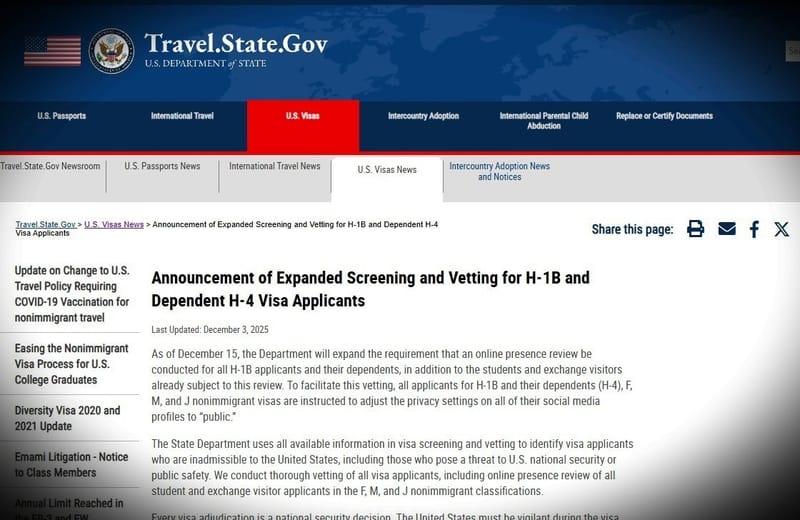Former DOGE Architect Calls for H-1B Visa Program Dismantling, Citing Harm to American Workers
This article highlights a vocal and controversial perspective from a tech figure advocating for the dismantling of the H-1B program, which could fuel ongoing debates about its impact on the American workforce and employer practices.

Subscribe to our newsletter and stay informed about latest H1B news, policy updates and and other developments.
Article Summary
James Fishback, a former DOGE architect, has publicly criticized the H-1B visa program, alleging that U.S. companies exploit it to avoid hiring qualified American graduates. He claims businesses intentionally obscure job postings to favor foreign workers, particularly from India, over domestic talent. Fishback advocates for the complete dismantling of the H-1B program, stating it unjustly prioritizes foreign labor.
Original Article: hindustantimes.com
[ Sentiment: negative | Tone: factual ]
This summary and analysis were generated by TheNewsPublisher's editorial AI. This content is for informational purposes only; it does not constitute legal or immigration advice.
[ Sentiment: negative | Tone: factual ]
This summary and analysis were generated by TheNewsPublisher's editorial AI. This content is for informational purposes only; it does not constitute legal or immigration advice.
TNP AI: Key Insights
This perspective, while controversial, reflects a persistent narrative among some critics that the H-1B program displaces American workers, directly impacting the policy debate around skilled immigration. For H-1B visa holders and employers, such public calls for dismantling the program signal potential political pressure and continued scrutiny, adding to uncertainty in workforce planning.
The allegations of companies hiding job postings and favoring foreign workers echo long-standing criticisms of the H-1B program's implementation, particularly regarding the 'no American workers available' requirement. These arguments often resurface during economic downturns or periods of high unemployment, fueling calls for stricter enforcement or program reform. For tech companies, this narrative, if gaining traction, could lead to increased public and governmental pressure for greater transparency in hiring practices and potentially stricter H-1B regulations.




